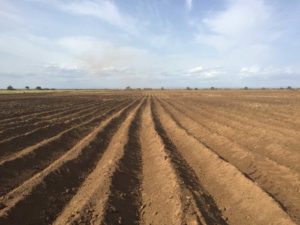Donation for Meal Sharing (የማዕድ መጋራት) program for the New Year
Donation for Meal Sharing (የማዕድ መጋራት) program for the New Year Read More »
There is a need of sustainable agriculture in Ethiopia because the sustainability of agriculture affects other needs such as food security and water. Ethiopia has promoted agricultural investment for over two decades now the government has showed a commitment towards enhancing agricultural productivity through attracting investment on agriculture on both local and foreign stockholders.
Agricultural sector can help Ethiopia and Ethiopians both in economic and environmental aspects. It has already made a significant contribution to the economic prosperity of our country in such a way that:-
Agriculture provides employment
Agricultural sector can decrease unemployment rate of the country by providing employment for a vast army of educated/uneducated and skilled/unskilled labours.

Agriculture contributes to National Income
Since we all know shortage of foreign currency is headache for our country, Agricultural sector can contribute on generating foreign currencies from export row materials. The perfect example for this is our company Fri-el Ethiopia which is engaged in cotton farming and processing to help the country from costing extra foreign currencies for importing cotton.

Beyond economic impact, agricultural investment is ideal choice for environmental protection. Some of them are:-
Agriculture creates Habitats
Agricultural system that works in peace with nature creates diverse natural habitats.
Some species even increase in number due to agricultural activities.
Agriculture boosts soil fertility
Agriculture is one of the best way to increase soil fertility practices such as crop rotation, application of compost and cover cropping can improve soil fertility naturally.

Agriculture retains soil and preserve erosion
Loses of soil is one of the biggest threat of our well-being. Agricultural investment, however, has the ability to preserve this damage.

How agricultural investment helps Ethiopia? Read More »